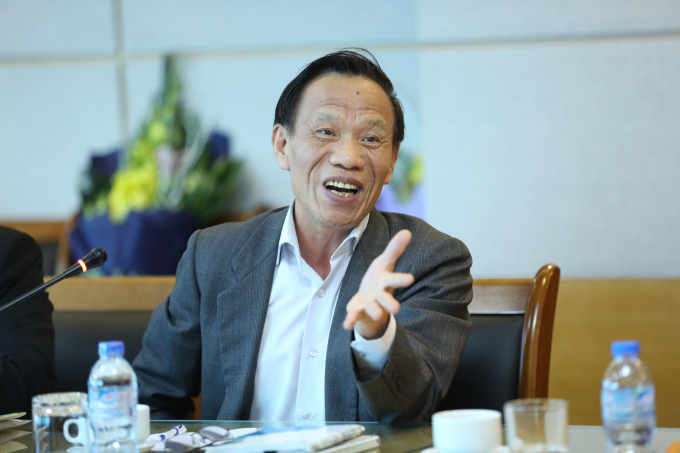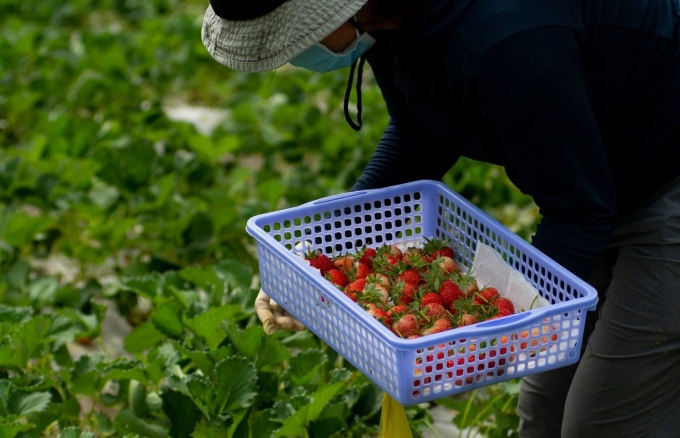November 27, 2025 | 23:56 GMT +7
November 27, 2025 | 23:56 GMT +7
Hotline: 0913.378.918
November 27, 2025 | 23:56 GMT +7
Hotline: 0913.378.918
First, from the viewpoint of flexible main force products, we mobilize the resources to strengthen each ecosystem. Especially in the Mekong Delta, instead of focusing on rice plant development like previously, seafood has been encouraged as a high-value, stable, and sustainable export product.
Consequently, it is more evident to consider the growth model at the national and local levels to produce products with export potential, thereby generating momentum and expanding the market. Vietnam's agricultural exports have steadily expanded and created a surplus of value, which is the best demonstration.
Second, home agricultural production models have facilitated the introduction of cutting-edge technology that lower investment risks. Despite the obstacles posed by epidemics and the "price storm," concentrated livestock and poultry farms have been secured.

Agricultural expert Hoang Trong Thuy.
Thirdly, agricultural and animal wastes have been recycled for use in agriculture. We have laid the foundation for a sustainable circular economy. Farmers are conscious of the need to reduce input costs to increase profits.
The practice of circular agriculture has expanded to a variety of locations, including cattle production regions, pineapple production areas in the vicinity of seafood processing factories, and coconut growing locations in Ben Tre. These are the models toward which the future of agriculture is oriented.
Fourth, the tendency of land acquisition and concentration is on the rise. The principal form of accumulation is not the transfer of land use rights, but rather the leasing of land from farmers for production expansion. Even in the most challenging locales with limited agricultural land, such as the province of Thai Binh, there have been several examples of relatively considerable land accumulation.
Regarding rural regions, the multi-subjective link proposed to establish sustainable product value chains is obvious. Households and cooperative organizations engaged in agriculture are no longer "isolated" in their own "oasis." They collaborate in production to build satellite units for cooperatives and "core" firms with economic potential, administrative capability, and product demand. Farmers now have access to smart equipment such as mobile phones and computers for connecting sales, attracting investment, and gaining production and business knowledge.

Harvest Hana strawberries at Max Organic. Photo: Organica.
Agriculture is seen as a living organism. Thus, the change in agriculture has resulted in population and residential movements toward production cooperatives. The status and significance of agriculture and rural development have been elevated in the thoughts of commune and district officials. They recognize that it is the basis, the pivot, for ensuring sustainable growth, and that the outcomes of the new rural building are based on the physical and mental capabilities of farmers.
Ecological agriculture, which produces clean, safe, and organic products, is also seen as an inevitable consumption trend. Therefore, contaminated food has no longer made headlines in recent years. This is a progressive strategy.
In the long run, agriculture is regarded as the most successful sector, with an average annual growth rate of 2.74 percent, and an average annual export turnover growth rate of 8.79 percent, which is with the lowest levels of investment and trade protection...
Due to the aforementioned examples, we can see the strength of agriculture. Based on the greate achievements made over the years, we can affirm that agriculture is the country's development strength, especially until the most recent Central Conference.
Translated by Linh Linh

(VAN) On November 27, in the meeting with Minister Tran Duc Thang, Mayor Yin Yong shared Beijing’s experience to improve environment and air quality.

(VAN) After 30 years, both sides identified strategic areas of cooperation: sustainable production, increasing coffee value and training for farmers.
/2025/11/27/4910-4-164708_294.jpg)
(VAN) On the afternoon of November 27 in Beijing, Minister of Agriculture and Environment Tran Duc Thang held a working session with several major Chinese enterprises operating in the agriculture and environment sector.

(VAN) The Department of Animal Health issued a provisional guideline requesting local authorities to increase surveillance, collect samples for testing, and conduct epidemiological investigations according to the established procedure.

(VAN) The United Nations recommends that Vietnam utilize data and artificial intelligence to enhance early disaster warnings and reduce GDP losses by 3.2% in the context of climate change.

(VAN) On the morning of November 27 in Beijing, Minister Tran Duc Thang and the Deputy Commissioner General of the General Administration of Customs of China signed a protocol on fresh jackfruit exports.

(VAN) As floodwaters recede, a vast network of irrigation works across eastern Gia Lai is emerging in a state of severe disrepair, with extensive damage demanding urgent restoration ahead of the 2025-2026 winter-spring cropping season.